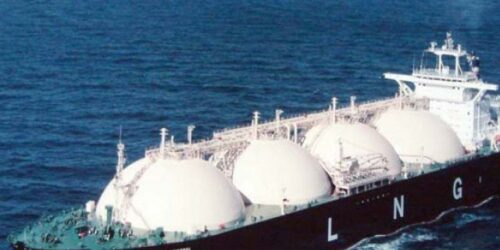Demand for liquefied natural gas (LNG) is expected to rise by 25 to 50 percent by 2030, making it the fastest growing hydrocarbon over the next decade, analysts from Morgan Stanley Research said in a note on Monday.
Morgan Stanley has raised its long-term LNG price outlook to $10 per million British thermal units (mmBtu), expecting spot prices of the super-chilled fuel to average 40% higher over the next decade, versus the past five years.
Asian spot LNG prices hit a record above $56 mmBtu earlier this month as surging demand ahead of the northern hemisphere winter spurred by an economic rebound from the pandemic outstripped supply.
Morgan Stanley said at least 73 million tonnes per annum (mtpa) of new projects are needed to meet LNG demand by 2030. This will require an additional $65 billion of new projects, on top of the $200 billion of projects already under construction which were sanctioned since 2019.
“Contrary to investor expectations, the world is going to need more LNG in the initial phase of the energy transition,” the analysts said.
“Competing technologies for natural gas are not being developed fast enough, and there are significant benefits in reducing coal consumption while greener fuels are commercialised.”
Projects with lower emission intensity will be more sought after and are more likely to progress, they said.
While higher gas prices are likely to underpin further investment in LNG, supply will be slower to respond than in previous cycles, the analysts said.
“This will be driven by uncertainty over medium-term demand along with more capital discipline from the industry, including diversification into greener energies,” they said.
“We think investor sentiment towards LNG-focused companies is likely to increase given better prices and returns expectations.”
LNG demand will outpace growth in other hydrocarbons over the next 10 to 15 years, they said, adding that oil demand is expected to grow in line with recent averages while coal demand is expected to be flat.
Asia, where coal makes up a high proportion of the energy mix, will be the key driver for LNG demand growth led by China and India as well as Taiwan, Thailand, Bangladesh, Indonesia and Malaysia, they added.





